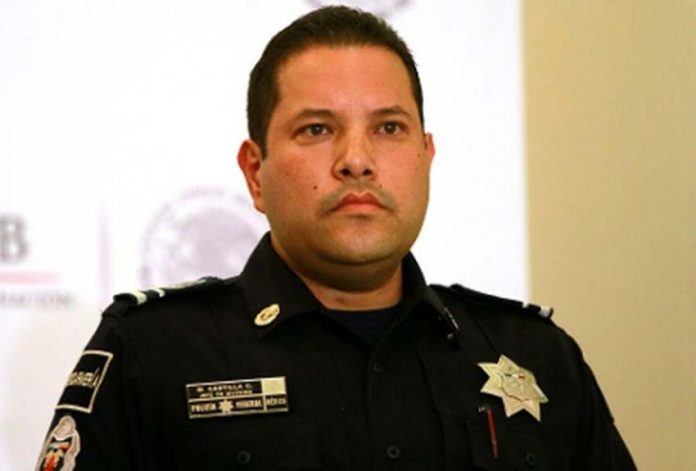A former Federal Police commander who collaborated closely with the Drug Enforcement Administration (DEA) and other United States authorities has pleaded guilty to drug trafficking conspiracy in a U.S. federal court.
The United States Attorney’s Office in the Eastern District of New York said Tuesday that Iván Reyes Arzate, former commander of the Federal Police’s Sensitive Investigative Unit (SIU) – comprised of personnel vetted by the DEA, pleaded guilty in federal court in Brooklyn to cocaine trafficking conspiracy.
It said that Reyes, nicknamed “La Reina” (The Queen), received a US $290,000 bribe in 2016 in exchange for agreeing to assist the El Seguimiento 39 cartel ship cocaine from Mexico to the United States. That organization has links to the Sinaloa Cartel, the Beltrán Leyva cartel and other Mexican cartels, the U.S. Attorney’s Office said.
United States Attorney Breon Peace said that Reyes, who turned himself into U.S. authorities in 2017 and was convicted and jailed on a separate conspiracy charge in 2018, “forged a deplorable alliance with drug traffickers and betrayed not only the people of Mexico he was sworn to protect but also his law enforcement partners who put themselves at risk to disrupt the [El Seguimiento 39] cartel.”
“Reyes Arzate turned a blind eye toward drug traffickers, enabling criminal enterprises to operate with impunity, while serving as a commander in the Mexican Federal Police,” said Ray Donovan, the DEA special agent in charge of the criminal investigation.

“DEA and our law enforcement partners worked tirelessly to isolate and identify this bad seed and bring him to justice.”
The U.S. Attorney’s Office noted that SIU officers in Mexico routinely work with U.S. law enforcement authorities to combat narcotics trafficking, money laundering and other criminal activities.
Reyes was assigned to the SIU in 2003 and became its commander in 2008, a role he held until 2016. It made him the principal point of contact for information sharing between U.S. and Mexican law enforcement personnel assigned to the investigative unit.
Before and during his tenure as an SIU officer and commander, he completed numerous law enforcement training courses offered by organizations such as the DEA, the Organization of American States, the Federal Bureau of Investigation and the United States Department of Defense.
When he is sentenced in January, Reyes faces a mandatory minimum sentence of five years in prison but could be jailed for up to 40 years.
The former commander could receive a more lenient sentence in exchange for cooperating with U.S. authorities in their case against former federal security minister and Federal Police chief Genaro García Luna, who is accused of taking multimillion-dollar bribes from the Sinaloa Cartel.
The trial of García, security minister in the government led by former president Felipe Calderón, is scheduled to commence in the United States next week.
